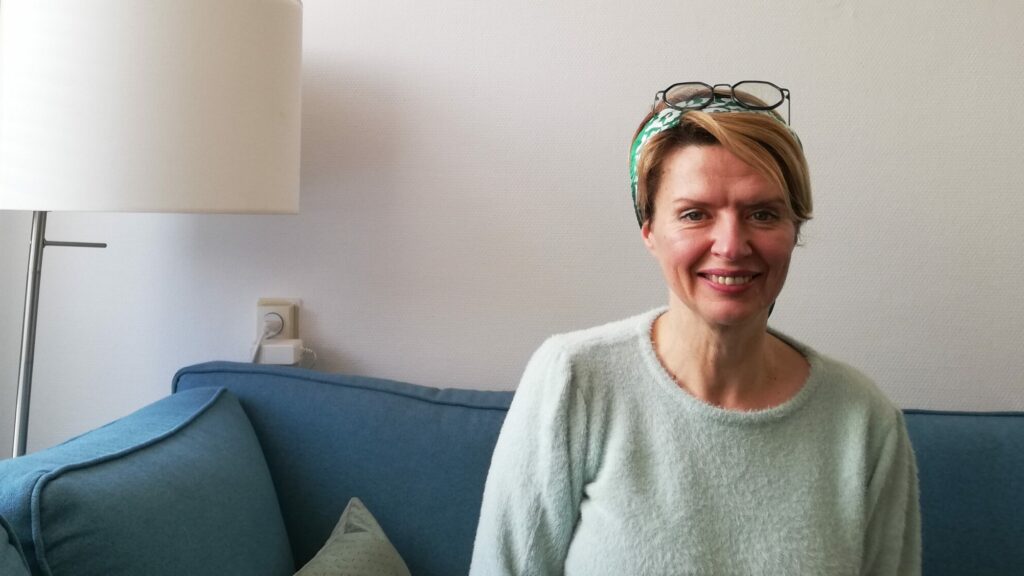Romanian health workers in the Netherlands: why they leave or stay
Romania has a severe health workforce crisis. More than 80% of medical students are planning to leave and the number of doctors and nurses that work in hospitals decreases year after year. A result of this is that Romanian patients are at risk of avoidable deaths. What is the problem and what can the Netherlands and the EU do to counter this? We spoke with three Romanian health workers about this issue. “The entire Romanian health care system should be reformed and restructured.”
After Romania became an official member of the European Union in 2007, it became much easier for health workers to leave the country and start to work elsewhere in Europe. Already before 2007, the rest of Europe was very appealing to young doctors and nurses, but after 2007, this trend became stronger. And currently, most of the medical students want to leave. In a survey done in 2017 among Romanian medical students, 84,7 % of the participants planned to seek employment abroad after their studies and most of them were already actively seeking a job elsewhere in Europe. And not only students, also doctors that are already working decide to leave. The total number of registered doctors in Romania was 39000 in 2014. Then the total number of doctors in Romanian hospitals has steadily decreased from 20648 doctors in 2011 to 14487 in 2012, and to 13521 doctors in 2014. The Romanian College of Physicians reported that “between 2007 and 2013, 14,000 medical doctors left their jobs in the national public health system and chose to practice abroad”. The consequences of this outflux are serious. In some hospitals only half of the required doctors and nurses are working. During the Covid-19 crisis, the situation was dire in every European country, but in the beginning of the pandemic, Romania experienced the highest death toll as a consequence of Covid-19, and the highest number of infected doctors and nurses.
Why do they go?
There are several reasons why health workers choose to migrate. Worldwide there is a lack of health workers which raises the demand. But also in Europe, there is a growing scarcity in professional and well-trained health workers. In an aging population, leading to more need of care but less people to provide this care, countries are looking for health workers elsewhere, offering them bonusses, good payment and other extras. The main migration flow of health workers is from less developed countries to more developed ones, also referred to as ‘brain drain’.
Flavius
In the Netherlands, there are Romanian doctors and other health workers from Romania, although France, the UK, Germany, Italy, and Spain are most popular. Doctors and nurses who migrate to the Netherlands are motivated by the level of professional development, level of salaries, living and working conditions and career development opportunities.

One of them is Flavius (26), who works at the hospital in Leeuwarden. “I wanted to study abroad, since I figured that then I would get a better education,” he says. “I also liked the idea of being in a multicultural environment. In Romania, medical studies are very theoretical. Books are as old as forty to fifty years and are not very up to date. I liked the practical focus of the medical studies in the Netherlands.” Flavius also likes, as he experiences it, the openness in the Netherlands as well as the non-hierarchical nature of the hospital. ‘In Romania you get a job via contacts, in the Netherlands you have to apply and therefore you have an equal chance.’ He also likes the availability of resources, and the salary that is better than that in Romania. Flavius does not want to go back to Romania. Although he had to adjust to the Dutch culture and has experienced loneliness in the process, he likes the open and free society and wants to stay.
Dana
Some others might be interested in going back. Dana is a psychologist and has been living in the Netherlands since 1990. When she came here, the process of getting a permit to stay and work here was exceedingly difficult and it took her a lot of effort and patience, quite different from what Flavius experienced. Dana treats clients in the Netherlands and in Romania (online). She misses the landscape and warm culture based on togetherness of people. And since psychology, her field of expertise has developed since she left, she is considering to go back to Romania. However, she says she would need a lot of money to do so, since starting your own practice in Romania is very costly.

Claudia
Attachment to her patients, friends and family is the reason general-practitioner Claudia would not want to leave Romania to permanently live somewehere else, although she sees downsides in salary, administration load, lack of resources and lack of effective communication with hospitals, she feels she is not the type of person who can leave everything behind and go. She did go to Ireland a few times, to work there as a general-practitioner during the summer. She completely understands why others leave, though, and it worries her. ‘Young doctors need older doctors to look up to and learn from,’ she says.
What can other European countries do to help counter the problem?
According to Flavius, Claudia and Dana, Romania itself is the first country in place to do something. Lessening the burden of the control mechanisms, continuing to raise the salaries, and making the medical studies less theoretical and more practical are some ideas. Also, Claudia thinks the communication and collaboration between hospitals and general practitioners could be improved. Some medical procedures can also be done by GPs, Claudia thinks. It would help to lessen the burden of the work in the hospitals. And Flavius thinks corruption is also hampering good care in Romania and should be solved.
Other countries can support Romania and keep on exchanging knowledge and ideas and within the EU push for a more honest system.
And the EU?
For the EU there is more to do. According to Flavius, salaries should be standardized all over Europe and raised for nurses. Dana and Claudia think that Romania should be supported and encouraged to improve the health care system in Romania so it’s more interesting for health workers to stay there. For instance, as Dana would like to go back, it should not be so expensive and difficult to start her own practice, she feels. And Claudia says that although wages are being raised in Romania, still the administrative burden and control mechanism that come with it are still too high. If Europe would standardize salaries for doctors and nurses it would be not so tempting to go, Flavius thinks. Because honestly, Flavius and Dana also miss Romania. They miss the warm culture, the beautiful nature, the fact that one makes friends very easily and those colleagues become friends, and the warm and sunny climate. If they would return, Romania would gain two more health care workers.
back